66 F. high in the Twin Cities Thursday.
70 F. average high for September 20.
73 F. high on September 20, 2011.
24% of the Arctic Ocean covered in ice in mid-September.
29% of the Arctic Ocean covered in ice in September, 2007, the previous record low.
Big Swings. Saturday still looks like the chiliest
day: highs stuck in the 50s with a gusty wind. Sunday should be sunnier
with less wind, and clear skies may set the stage for a light frost in
outlying suburbs early Sunday morning. I doubt we'll have a frost within
the 494/694 freeway, the close-in suburbs. 70+ highs return next week,
possibly one of the nicest weeks of 2012.
Autumnal Equinox. Fall officially kicks off Saturday
morning, when the sun's direct rays will fall on the equator. Although
we've been enjoying "meteorological autumn" since September 1. Why?
Historically, the 90 warmest days of the year come from June 1 thru
August 31. So as far as the atmosphere is concerned, we've been
experiencing fall for nearly 3 weeks now. How much daylight has been
lost since the first day of summer? Here are some stats from Wolfram
Alpha. Graphic above from
earthsky.org, which has more details on the Autumnal Equinox.
Twin Cities lost 3 1/2 hours of daylight
NYC lost 3 hours and 3 min
Seattle lost 3 hours and 50 min
Miami lost 98 minutes
Louisville lost 1 hour and 52 minutes
Phoenix lost 2 hours and 16 min
Houston lost 1 hour and 57 minutes
"
...The sea ice is declining much faster than had been predicted in the last big United Nations report
on the state of the climate, published in 2007. The most sophisticated
computer analyses for that report suggested that the ice would not
disappear before the middle of this century, if then. Now, some
scientists think the Arctic Ocean could be largely free of summer ice as
soon as 2020..." - from a New York Times article below. NASA's James Hansen is calling this a planetary emergency. Alarmist? We'll see.
Photo credit above: "The east coast
of Greenland, where the melting ice sheets meets the sea, on July 23,
2012. The apparent low point for 2012 was reached Sunday, when sea ice
covered 24 percent of the surface of the Arctic Ocean, down from the
previous low of 29 percent set in 2007." (Andrew Testa/The New York Times)
"We are now in uncharted
territory," said NSIDC Director Mark Serreze. "While we've long known
that as the planet warms up, changes would be seen first and be most
pronounced in the Arctic, few of us were prepared for how rapidly the
changes would actually occur." - from a Jeff Masters post at Weather Underground; details below.
Arctic Cyclone Breaks Up Sea Ice. Here's an amazing time-lapse
YouTube visualization, showing the impact of severe storms on the remaining Arctic ice, courtesy of NASA: "
Watch
how the winds of a large Arctic cyclone broke up the thinning sea ice
cover of the Arctic Ocean in early August 2012. The storm likely
contributed to the ice cap’s shrinking to the smallest recorded extent
in the past three decades."
When The Weather Is "Too Nice". I'm enjoying this
quiet spell as much as the next guy, but right now 5" of rain over 5
days would qualify as "great weather". No such luck. The ECMWF model
shows a few light showers today, then another dry spell from Sunday into
Friday of next week. The drought is going to get worse before things
turn around.
Minnesota's Drought Expands, Worsens. Nearly 2/3rds
of Minnesota is now in moderate drought, or worse, up from 44.39% last
week. Over 96% of Minnesota is "abnormally dry" as of September 18,
according to the
U.S. Drought Monitor.
Drought Outlook. NOAA forecasters are predicting
Minnesota's drought to persist, or even intensify in the weeks ahead
(something I happen to agree with looking at the latest maps and
trends). Some improvement is forecast over the Midwest and Mississippi
River Valley. Source:
NOAA.
Jumbo Clipper. A surge of chilly, Canadian air will
whip up a swirl of showers from Minnesota into the Great Lakes, reaching
the east coast by Saturday. High pressure pushes across the Midwest
Sunday, clearing skies from west to east over the northern tier states.
With the exception of T-showers over south Florida the vast majority of
America stays dry into Monday.
Fall Harvest. Thanks to WeatherNation TV meteorologist Todd Nelson (and Instagram) for sending in these photos from near St. Michael.
Flaming Fall Foliage. Here's a photo from
Buena Vista Ski Resort near Bemidji via FB: "
The
Fall Color Covered Wagon Rides are this weekend!--Saturday 22nd
11am-3pm & Sunday 23rd 1pm-3pm at the Buena Vista Village. Hope to
see you all out there!! ~The colors are BEAUTIFUL!!"
Why Are Fall Colors Peaking Faster In The MSP Metro? Check out the latest
fall color map
above from the MN DNR. Peak color is in...the metro area? What on Earth
could be doing this? I asked Lee Frelich that question and here is his
response:
"Yes, that is odd.
Right now I think drought stress is driving
early fall color in much of the state. Usually urban heat islands delay
fall color due to warmer nighttime temps. However, in a drought
situation, the warmer temperatures of the heat island could have an
opposite effect by causing even more evaporation and water stress for
trees. The extremely early spring could have an impact, since the urban
heat island made that even earlier in the Metro than surrounding areas.
I have seen a lot of maples and lindens in
areas without irrigation that have lost most of their leaves, whereas
they are still retaining green leaves in areas that are watered. Oaks
have no changed color, whether in areas with or without irrigation. That
leads me to wonder if certain species like the maples are used in the
DNR assessment of color - I am not sure how they make the maps. One
thing is certain, however, namely that oaks will be a lot more
successful at dealing with longer growing seasons and droughts in a
future warmer climate than maples and lindens. This spring and summer
show that very clearly.
Lee
Lee E. Frelich
Director, The University of Minnesota Center for Forest Ecology
Minnesota Flood Relief Efforts Reaching Out To Victims. The
Duluth News Tribune has the story; here's an excerpt: "
Minnesota
officials on Wednesday announced new efforts to get financial help to
people who suffered flood damage in June — including disaster relief
coordinators now calling victims. The new effort called “Flood Homes
with Hope” aims to connect flood victims with already available
resources to help them rebuild and repair sooner. The progrom offers a
case manager for each resident or business that needs help, said
Minnesota Lt. Gov. Yvonne Prettner Solon. The effort includes the
United Ways of Greater Duluth, Carlton County and Douglas County,
Ecolibrium3, One Roof Housing, the Salvation Army, Lutheran Social
Service, Carlton County, St. Louis County and other groups."
Songbirds On Doppler? Here's a fascinating
FB post from the Dodge City, Kansas office of The National Weather Service: "
This
is a rather fascinating radar mosaic from late this evening. A cold
front was pushing south without much in the way of precipitation (except
across the Great Lakes Region). What is with all the blue and green
circles north of the cold front? This is the songbird migration south!
Migration season is well underway now, and many songbirds are taking
advantage of the north wind behind the front. Notice the lack of blue
and green "rings" of echo around the radar sites south of the
front...yet a flurry of them north of the front. This is a telltale
indication of the songbird migration (among other migratory
birds/insects) underway!"
Ending Its Summer Melt, Arctic Sea Ice Sets A New Low That Leads To Warnings. Here's a thorough (and vaguely troubling) update from Justin Gillis at
The New York Times: "
The drastic melting of Arctic sea ice has finally ended for the year, scientists announced
Wednesday, but not before demolishing the previous record — and
setting off new warnings about the rapid pace of change in the region.
The apparent low point for 2012 was reached Sunday, according to
the National Snow and Ice Data Center,
which said that sea ice that day covered about 1.32 million square
miles, or 24 percent, of the surface of the Arctic Ocean. The previous
low, set in 2007, was 29 percent."
Graphic credit above: "
This image made available by NASA
shows the amount of summer sea ice in the Arctic on Sunday, Sept. 16,
2012, at center in white, and the 1979 to 2000 average extent for the
day shown, with the yellow line. Scientists say sea ice in the Arctic
shrank to an all-time low of 1.32 million square miles on Sunday, Sept.
16, 2012, smashing old records for the critical climate indicator.
That's 18 percent smaller than the previous record set in 2007. Records
go back to 1979 based on satellite tracking." (AP Photo/U.S. National Snow and Ice Data Center)
Earth's Attic Is On Fire: Arctic Sea Ice Bottoms Out At A New Record Low. Dr. Jeff Masters from
Weather Underground has a good post about the unsettling things taking place at the top of the world. Here's an excerpt of a must-read article: "
The
extraordinary decline in Arctic sea ice during 2012 is finally over.
Sea ice extent bottomed out on September 16, announced scientists at
the National Snow and Ice Data Center (NSIDC)
on Wednesday. The sea ice extent fell to 3.41 million square
kilometers, breaking the previous all-time low set in 2007 by
18%--despite the fact that this year's weather was cloudier and cooler
than in 2007. Nearly half (49%) of the icecap was gone during this
year's minimum, compared to the average minimum for the years 1979 -
2000. This is an area approximately 43% of the size of the Contiguous
United States. And, for the fifth consecutive year--and fifth time in
recorded history--ice-free navigation was possible in the Arctic along
the coast of Canada (the Northwest Passage), and along the coast of Russia (the Northeast Passage or Northern Sea Route.)"
Graphic credit above: "
Arctic sea ice reached its minimum on September 16, 2012, and was at its lowest extent since satellite records began in 1979." Image credit: National Snow and Ice Data Center (NSIDC). Weather Underground.
"Ask Paul." Weather-related Q&A:
"I am not particularly skeptical of Climate
Change, and it is clear to me observationally (I am a 50+-year-old
Minnesota native) that Fall and Spring are definitely encroaching on
‘traditional’ Winter in this area. I also accept the validity of your
posts, and articles from other sources, that Arctic ice is shrinking at a
record pace. At the same time, I have seen other articles and posts
that Antarctic ice is increasing at a record pace. Those posts and
articles are, however, much less numerous or prominent which leads some
to conclude that the emphasis on the amount of ice at one pole as
opposed to the other pole is more evidence of the existence of a vast,
media-driven Global Warming/Climate Change Alarmist conspiracy.
I ain’t exactly buying that, but am curious
if: (1) you are aware of the assertions that Antarctic ice has
increased and continues to increase to record levels; (2) whether you
agree that the evidence supports that assertion; and (3) whether or how
that increase affects your concern that the decrease in Arctic ice may
well be a troubling sign of Climate Change. And, in any event, don’t
you think it would be worthwhile to acknowledge and attempt to account
for the Antarctic ice evidence when discussing the issue? It might
(yes, I am an eternal optimist) at least make certain folks (including
intelligent, thoughtful folks) a bit less skeptical of the media
‘narrative’ on the issue and a bit less convinced that they are not
being presented with a fairly balanced picture on the issue—and I don’t
mean balance for balance sake, i.e., that the media has to present the
‘other side’ and give it equal time regardless of whether that side has
any credibility.
NOTE: I suppose it would be easy to say that
divergent Arctic and Antarctic ice records are both evidence of climate
change, since both support (or at least don’t contradict) a conclusion
(or hypothesis, anyway) that the climate is different now than it was
when the records were begun and is getting more and more
different—although, at least geologically, it looks like a damn small
sample size to me. But I still think it is important to squarely
address the issue so that the ‘other’ side can’t credibly claim that
supportive evidence is being cherry-picked and utilized, while arguably
contrary evidence is being ignored since it doesn’t fit the narrative.
Anyway, I enjoy the blog. Full disclosure: I
also enjoy Dan B. on KFAN, but do agree that his weather terrorist
assertions about you have gotten stale and (at least based on my reading
of your blog) haven’t been accurate for some time—if they ever were."
Thanks.
Tom V. from Plymouth
Tom - I'm aware of the "Antarctica is gaining snow/ice" meme and
there's some truth to this. I try very hard not to cherry-pick data to
support my "view". The science is the science. The data is the data.
Let's lose the spin. Let the chips fall where they will, based on facts
on the ground, not ideology or politics. Check out my blog post from
Thursday for more details on Arctic ice loss vs. Antarctic snow/ice
gain. I don't claim to be an expert, but I trust Phd. climate
scientists, who are acknowledging a (slight) increase in snow and ice
over Antarctica, but the increase is minor, and some of the increase in
Antarctic snowfall may be linked to a 4-5% spike in water vapor, due to a
warming atmosphere over (warmer) oceans. I don't think anyone is
denying the fact that seasonal snow/ice over Antarctic is increasing
slightly, but I see no scientific evidence that this slight uptick is
somehow "balancing" the record, historic ice loss over the Arctic. Check
out this
LiveScience article
that talks about the profound differences between what's happening at
both poles. I don't think LiveScience leans left or right - they seem
dedicated to sound science.
For the record, it appears Arctic ice loss is
18% lower than the previous record low, set in 2007.
Perspective.
This site
(authored by a climate scientist, not a blogger) puts what's happening
into Antarctica into perspective from a long-term, historical
standpoint. Here's an excerpt: "
It might look like 2012 just barely broke the all-time record, but actually it did not.
It just barely missed...This year’s peak is certainly above average.
But it’s nowhere near “astounding.” In fact, if it weren’t in red
color, or if you’re color-blind, you could have trouble picking out
which line is 2012 even in this expanded view.
I’m fond of emphasizing trends rather than
individual events (climate over weather and all that). For that
purpose, one strategy is to study sea ice anomaly. Doing so removes the
annual, seasonal cycle from the data. Here’s the sea ice extent
anomaly data, for the Antarctic (in blue) and the Arctic (in red),
which reveals that both have shown an overall trend, in opposite
directions:"
As for the "weather terrorist" crack, I find it all
a bit amusing. Name-calling is pervasive these days, and it's all just
kind of sad. I have zero time and respect for people who resort to
tactics like this to make a point, or build themselves up by ripping
other people down. And frankly, I've been called much worse - by my wife
of 28 years. The people who rant and rave about meteorologists hyping
the weather for TV ratings (or readers) miss the point: the weather is becoming more extreme. Two out of three Americans interviewed in 2011 were personally impacted by severe weather.
It's weather-hype until it hits your neighborhood.
Ask people in St. Peter, Wadena, Granite Falls, Siren or Joplin,
Missouri if the meteorologists were crying wolf. I'd rather err on the
side of caution - than apologize for missing a tornado or a major winter
storm. New technologies are emerging that will alert only the people in
the direct path of a tornado. No need to interrupt your favorite show -
your smart phone or tablet (or vehicle's dashboard) will beep, and
you'll get hyper-local warning information. Far fewer people will be
needlessly bothered with alerts.
During the (real) winter of 2010-2011 there was a
specific December storm that comes to mind. I predicted 12-20" of snow
for the metro and a few local radio "personalities" thought I had lost
my mind. The forecast verified, by the way, but I guess that wasn't
newsworthy. Unlike others in town, I admit when I'm wrong, and try to
explain why the forecast busted. Some of the most consistent hype and
chest-beating comes from local talk shows on AM and FM. Thank God for
Sirius Satellite Radio, The Current, Spotify, Rhapsody, Stitcher and
other streaming technologies that widen the listening options when
you're stuck on I-494.
WGN-TV's Tom Skilling Signs 10 Year Contract Renewal. He's worth every penny, in my humble opinion. TVspy has
details.
"Sun Dog". Here's a great example of mock suns,
called "sun dogs" , an example of parhelia, optical effects triggered by
white sunlight being refracted (bent) by billions of tiny, prism-like
hexagonal ice crystals, which can produce two brightly colored splotches
of rainbow-like light on either side of the sun. They are seen close to
sunrise or sunset, never at midday when the sun is high the sky. Thanks
to Sheena Nelson in St. Michael for passing this along.
ABC's Robin Roberts Receives Bone Marrow Transplant.
TVSpy.com has the details; here's an excerpt: "“
Good Morning America” anchor Robin Roberts is getting a bone marrow transplant from her sister, WWL morning anchor Sally-Ann Roberts, today. Sally-Ann has been in New York this week with a third Roberts sister, Dorothy, to be with Robin, who suffers from a rare blood disorder as a result of her treatment for breast cancer in 2007. Sally-Ann posted an update on her Facebook page
this morning: "September 20th is a new date to mark on the Roberts
family calendar. This is Robin’s birthday! This morning Dorothy and I
will witness Robin get stem cells that once lived inside me to move to
their new residence. They’re moving on up!"
Saturday: First Day Of Autumn (And So Much More). To
be fair, "meteorological autumn" really began back on September 1. If
you look at what is (historically) the warmest 90 days of the year,
summer really runs from about June 1 to September 1. So we've been
enjoying autumn now for nearly 3 weeks. But did you realize that
Saturday is also: "International Day of Peace", "American Busines
Women's Day", "Car Free Day", "Dear Diary Day", " Elephant Appreciation
Day", "Hobbit Day", "Ice Cream Cone Day", "International Day of Radiant
Peace", "National Centenarian's Day", "National White Chocolate Day",
"AKC Responsible Dog Ownership Day", and last, but not least "Fish
Amnesy Day". Who knew? Check out
this site for a few laughs and giggles.
"Washit" Cleans You And Your Clothes Simultaneously. Say what? G
izmag.com has the details: "
Water
is a precious resource and in places like Australia and the U.K., the
onset of summer coincides with restrictions on water use – hosepipes
for watering gardens are banned, and showers are recommended over
baths. But even taking a shower uses a fair amount of water, which all
ends up down the drain. The same goes for doing laundry. If only there
was a way to combine the two into one unified unit."
“In this ever-changing society, the most powerful and enduring
brands are built from the heart. They are real and sustainable. Their
foundations are stronger because they are built with the strength of the
human spirit, not an ad campaign. The companies that are lasting are
those that are authentic.” - Howard Schultz, CEO of Starbucks, quoted in a
David Gee article about
authenticity that deserves a read.
Paul's Conservation Minnesota Outlook for the Twin Cities and all of Minnesota:
TODAY: Mostly cloudy and windy with a few showers. Winds: NW 10-20. High: 61
FRIDAY NIGHT: Evening showers, then clearing late. Low: 41
SATURDAY: Sunny start. More clouds than sun, cool and brisk. High: 54
SATURDAY NIGHT: Clearing skies - frost possible central and western Minnesota (most of the metro will probably remain frost-free). Low: 36
SUNDAY: Nicer day of the weekend. More sun, less wind, a bit milder. High: 59
MONDAY: Sunny and milder. Nearly perfect. Low: 47. High: 71
TUESDAY: Blue sky, still too dry. Low: 51. High: near 70
WEDNESDAY: Bright sun, light winds. Low: 53. High: 69
THURSDAY: Sunny start, clouds increase PM. Low: 55. High: 73
Football Weather
"We pretend to work because they pretend to pay
us." Rejoice workers! Job productivity and test scores will spike today!
Why? The latest Alberta Clipper will send a pinwheeling swirl of clouds
and gusty showers into town, leaving you less distracted, more focused
on that pile of work on your desk.
Woo hoo!
A
Harvard Business School study
confirms common sense: we are hopelessly distracted on blue-sky days.
Tracking bank employees in Tokyo, the study said "they found that an
increase in rain correlated with a decrease in the time it took for
workers to complete their tasks. Low visbility and extreme temperatures
also matched periods of high worker productivity. Clear, sunny days
correlated with relatively low productivity."
Are we better students and employees during the cold, gray winter months? Sounds good to me.
Don't expect much rain the next week; our
drought will almost certainly get worse. Have a Plan B today: ragged
clouds, a few light showers. Saturday will feel like the first day of
autumn, peeks of sun, highs stuck in the 50s. Most of the metro should
avoid a Sunday AM frost.
Highs nudge 70F next week; more distractingly nice weather!
Climate Stories...
Record High Antarctic Sea Ice Levels Don't Disprove Global Warming.
It's a popular new (denier) meme. O.K. "O.K. We can't argue about
what's happening at the top of the world, but an increase in Antarctic
ice is more than making up for Arctic ice loss, balancing things out,
therefore there is NO global warming!" Please ignore the big, hot,
sweaty elephant in the living room. Amazing how this faux-logic works.
According to
LiveScience this line of reasoning is pure bunk; here's an excerpt: "...
But
these effects are very small, and Antarctic sea-ice levels have
increased only marginally. In the coming decades, climate models suggest
rising global temperatures will overwhelm the other influences and
cause Antarctic sea ice to scale back, too. The extent of Arctic sea ice
at its summertime low point has dropped 40 percent in the past three
decades. The idea that a tiny Antarctic ice expansion makes up for this
— that heat is merely shifting from the the Southern Hemisphere to the
Northern and therefore global warming must not be happening — is "just
nonsense," Serreze said."
Photo credit above: "On Sunday, September 16m 2012, Arctic
sea-ice extent set a new record low that far surpasses the previous low
set in 2007." Credit: Jeremy Potter NOAA/OAR/OER
Starting To Tackle Climate Change. Details in this story from
The Hill; here's an excerpt: "
The
presidential campaign has produced only one memorable line about the
environment so far -- and it was played for laughs. Republican
contender Mitt Romney told his party's convention that "President Obama
promised to begin to slow the rise of the oceans" -- then paused for
his audience to guffaw. Romney may have sounded dismissive to anyone
who takes climate change seriously. But the Democrats haven't been much
better. At the Democratic National Convention, President Obama offered
just one small sound bite in support of renewable energy. His team has
also avoided any mention of climate change."
Climate Change Means Taxpayers Could Pay For More Disaster Clean-ups. Another timely article from
The Hill; here's a snippet: "
A
trend of insurance companies backing away from
extreme-weather-threatened regions might leave taxpayers on the hook for
more natural disaster cleanup efforts, according to a report released
Thursday. This past summer’s wildfires in the West and drought in the
Midwest showed extreme weather affects more than just coastal
regions, Mindy Lubber, president of Ceres, the business sustainability
group that published the report,
said in a Thursday conference call. Lubber said Congress “needs to
look at where the federal government is being asked to pick up markets
the insurance companies no longer want to be in, and ask if that’s the
right policy.”

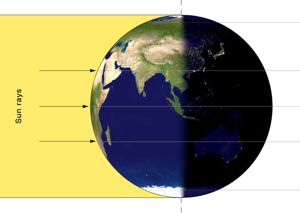
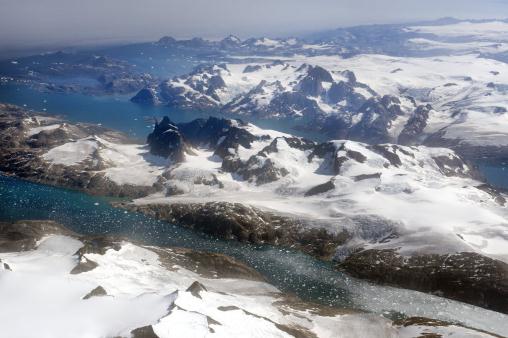
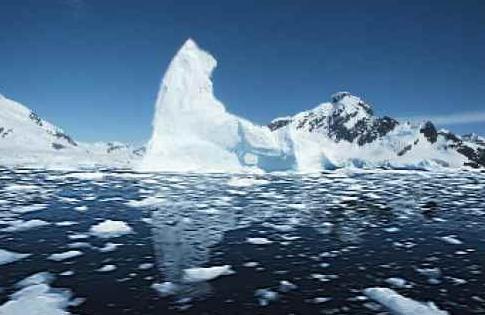
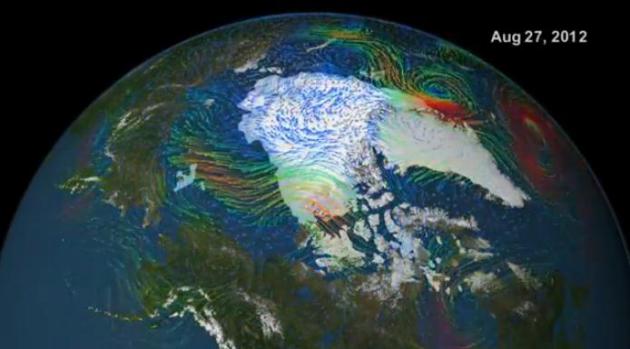

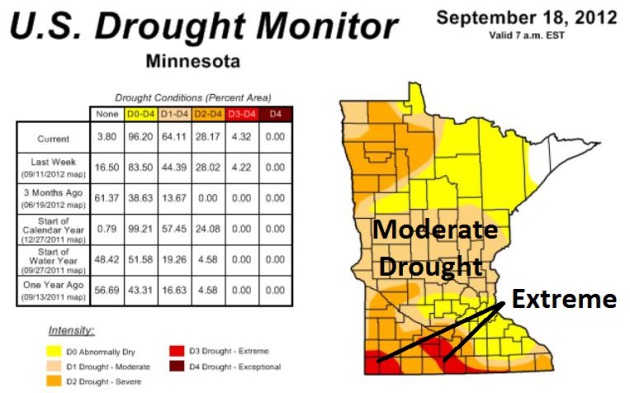
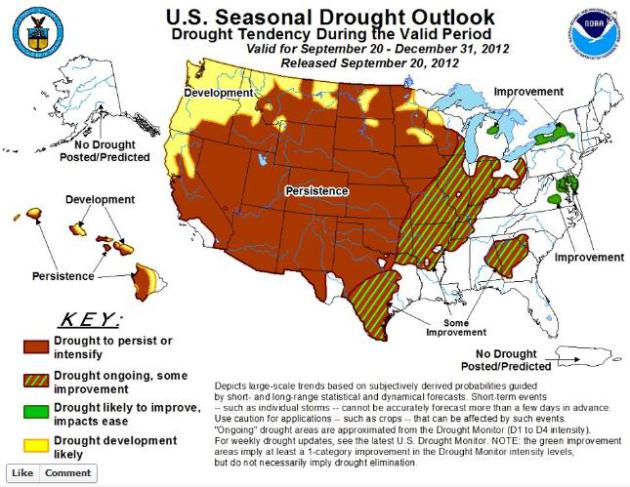
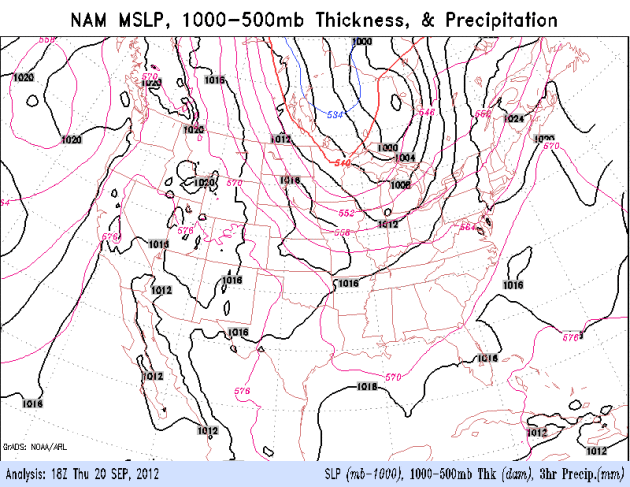
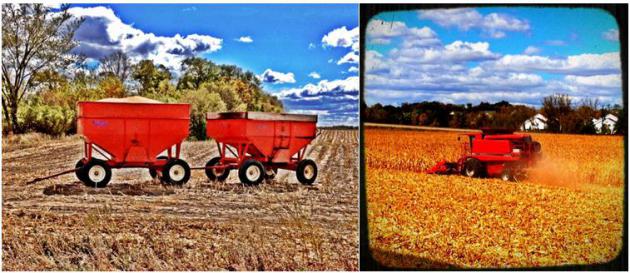
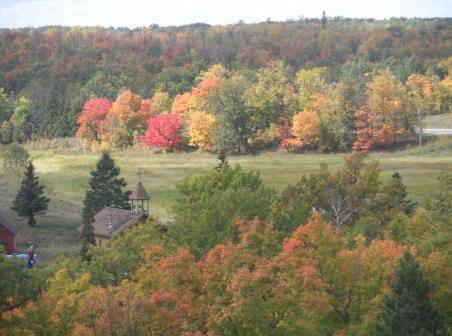
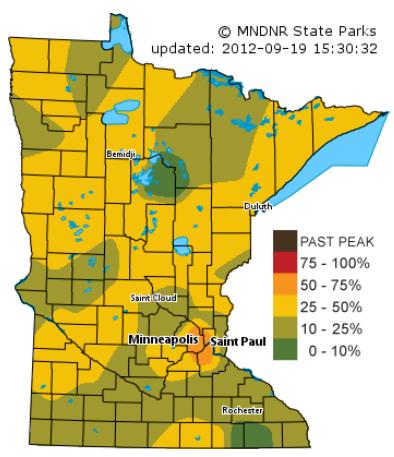
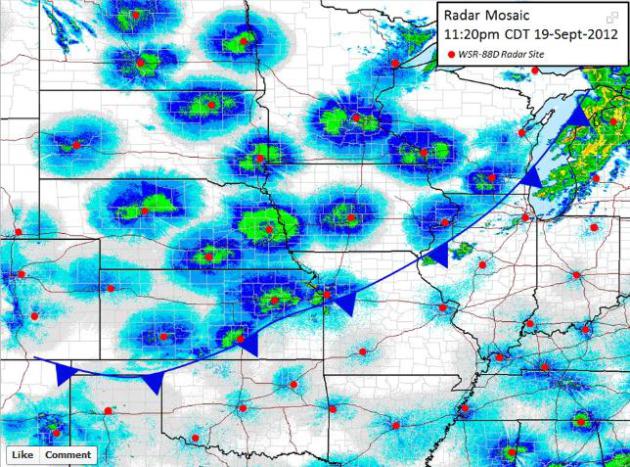
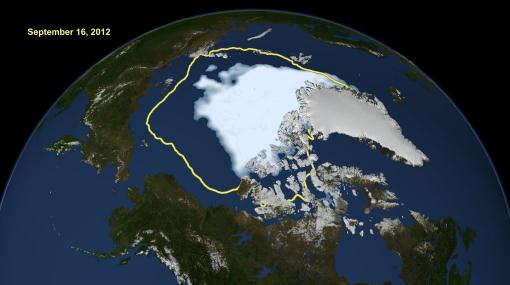
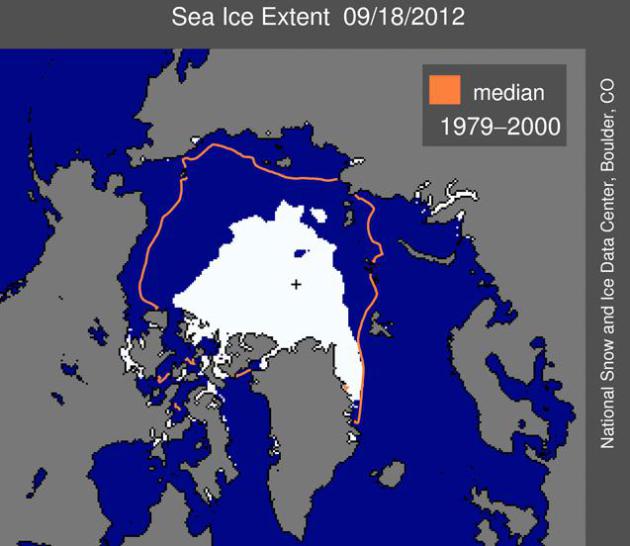
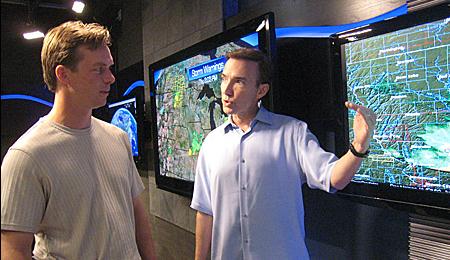

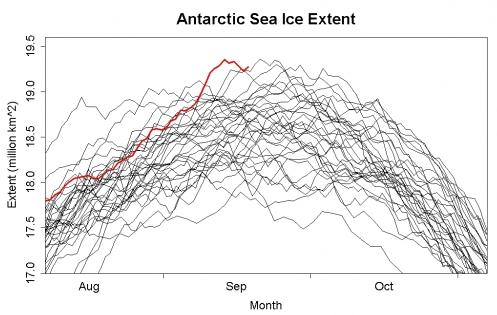
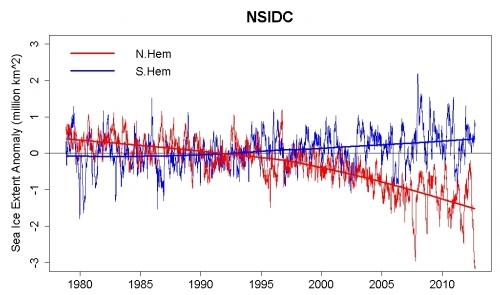

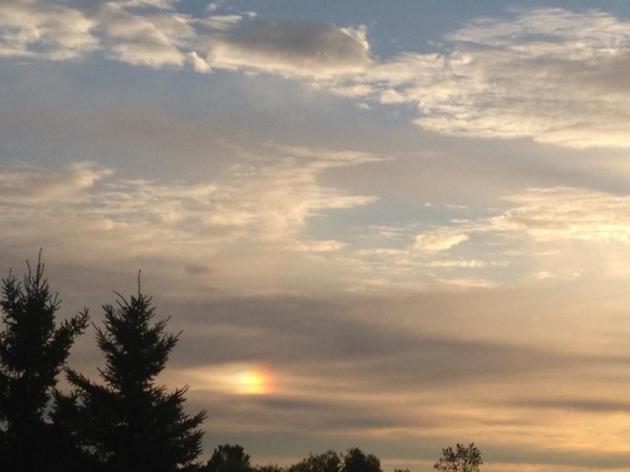




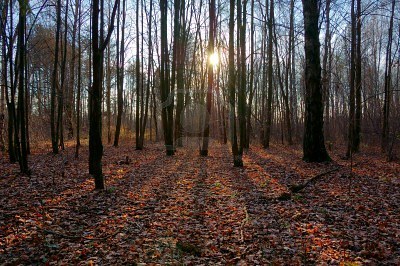
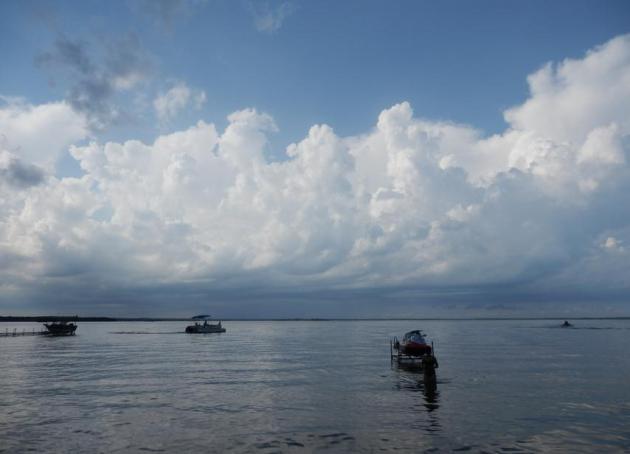
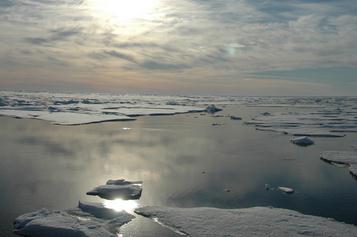

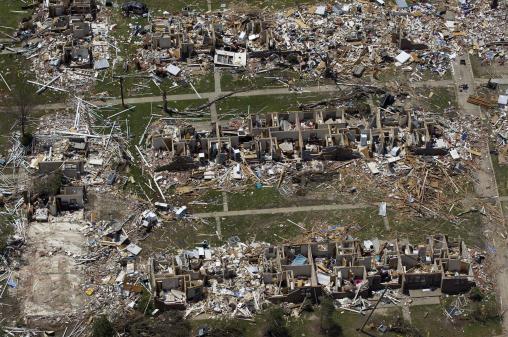
No comments:
Post a Comment